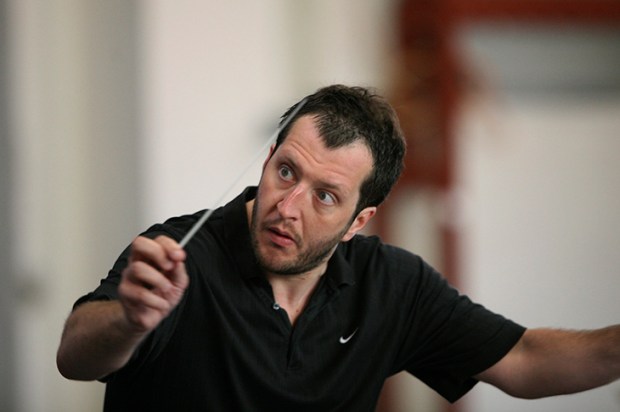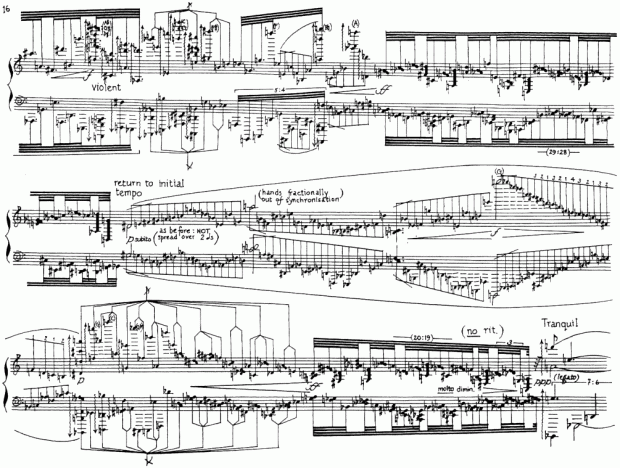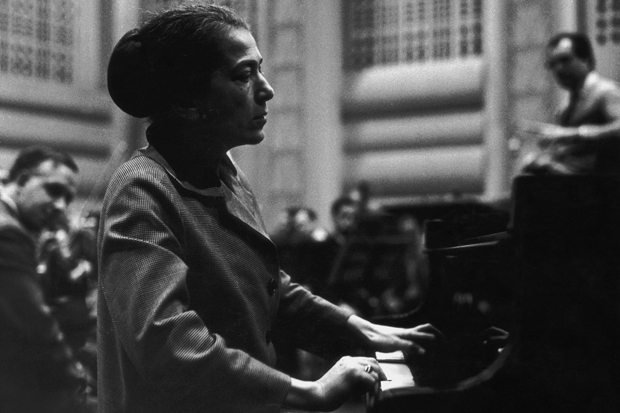At the entrance to Marylebone railway station is an old piano that anyone can play. Unfortunately, whoever had this sweet idea can’t be bothered to fix the broken notes. Even so, about once a fortnight, on my way back from visiting my mother in Gerrards Cross, I put down my shopping bag and bash out Chopin’s Waltz in C-sharp minor.
As I do, I invariably think about Mrs Irene Oates, the first proper eccentric I met. She was my only piano teacher and I’m grateful to her. On the other hand I’m not very good, even by amateur standards, and she’s partly to blame.
When I was 11, my mother told me that she’d spoken on the telephone to a lady who was going to teach my sister and me the piano. ‘She’s a real talker,’ she added, slightly apprehensively. My parents weren’t voluble people.
The apprehension was justified. Once a week my father would drive me to my teacher’s terraced house in Maidenhead. Oates was an appropriate name for her because he knew that, like the polar explorer, I ‘may be some time’. Often I’d return after an hour and 40 minutes, most of it spent chatting. My father was always furious.
But for me it was bliss. Mrs Oates would fling open the door and push me into her ‘drawing room’, which was the size of a teabag but decorated in the style of the Second Empire. She was a middle-aged lady with red curly hair who waved her arms around a lot, her diamanté reading glasses swinging furiously as she tottered on perilous heels. She was big-boned and not naturally graceful; there was always a danger that a bust of Beethoven might go flying. Had that happened, it would have been an epic disaster. Every misfortune was a crisis, just as everything nice was greeted with a shriek of ‘Oh, goody!’
Mrs Oates had a Yorkshire accent that veered from broad to genteel. But before her divorce she had lived in California, and there was a whiff of Hollywood about her. Music was her ‘passion’, she declared, and it was true: she would display her love of opera by throwing back her head and yelling ‘Figaro-Figaro-Figaro-Figaro-Figaro-Figaro’ from The Barber of Seville.
All this hysteria I loved. The anxiety, less so. Mrs Oates adored her dozen or so pupils but worried that we might let her down by scoring less than top marks in an Associated Board exam. Her vicarious pre-exam nerves freaked us all out.
Even scarier was her annual recital. The parents were squeezed into corners and fed finger-sandwiches and pink fondant patisseries. ‘I have extremely good taste,’ she liked to say, and part of that taste was worship of daintiness. But behind the gentility was panic: every wrong note was a dagger to her heart.
At the end of the recital she would perform something herself. ‘After those fancy cakes I was expecting delicate Mozart,’ said my mother. Instead, Mrs Oates launched into a lush arrangement of the Italian song ‘Sorrento’, swaying over the keyboard to emphasise the ‘very deep feeling’ she was injecting into the piece.
She taught me until I went to university, and by the end I’d begun to grasp that her life was full of fear. She struggled to bring up two boys on a miserable income. She hinted that her ex-husband was ‘difficult’. Then came the news that he’d stabbed his second wife to death in a Los Angeles parking lot. After two years in jail he was killed by another prisoner.
For a woman who was plunged into despair if her poodle caught a cold, Mrs Oates dealt with this horror with surprising calm. But the strain was showing. Her last days were unhappy, I think, and I’m ashamed that when she died 15 years ago I hadn’t seen her for over a decade. I kept meaning to, but never got round to it. She just didn’t strike me as the sort of person who would die.
Was she a good piano teacher? It’s difficult to say. She had no special insights into technique and accuracy wasn’t her strong point. It was years before I learned that when a composer writes l’istesso tempo he does not mean ‘play listlessly’, as Mrs Oates insisted, miming listlessness by flopping about like a rag doll.
But then I remember the time she put on a record of Liszt’s Totentanz and marched around the room bawling out its Dies Irae theme, bracelets slipping down her arm as she ‘conducted’ the orchestra. Mrs Oates taught me that it’s OK for adults to become childishly excited about classical music. If I’d gone to a more conventional teacher I might have become a better pianist — but I’m so glad I didn’t.
Got something to add? Join the discussion and comment below.
Get 10 issues for just $10
Subscribe to The Spectator Australia today for the next 10 magazine issues, plus full online access, for just $10.
You might disagree with half of it, but you’ll enjoy reading all of it. Try your first month for free, then just $2 a week for the remainder of your first year.













Comments
Don't miss out
Join the conversation with other Spectator Australia readers. Subscribe to leave a comment.
SUBSCRIBEAlready a subscriber? Log in